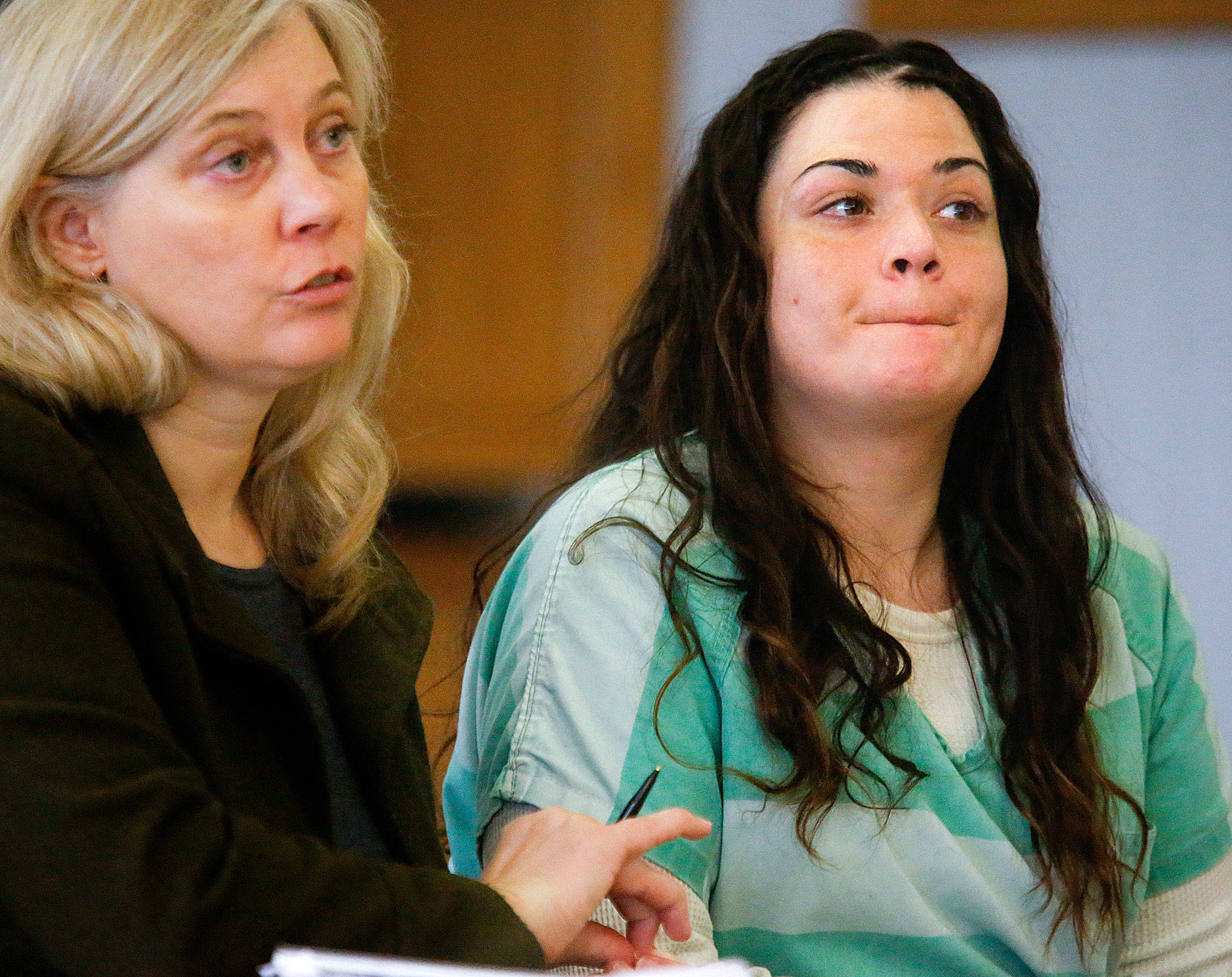EVERETT — A Snohomish County judge doesn’t think jurors got it right when they convicted a woman of being responsible for Ian Digre’s overdose death.
Superior Court Judge Linda Krese concluded that despite the jury’s verdict there wasn’t enough evidence presented at trial to prove beyond a reasonable doubt that the heroin Gabrielle Waller sold Digre caused his death.
In an unusual move, Krese on Wednesday granted the defense’s motion for an arrest of judgment, essentially declining to sign off on Waller’s controlled substance homicide conviction.
Krese in her ruling pointed to the assistant medical examiner’s testimony. Dr. Stanley Adams found that Digre died from a mixture of drugs, including heroin and methamphetamine. Adams could not say if it was the heroin alone that caused the fatal overdose.
There was no evidence that Waller provided Digre meth.
“Dr. Adams and the toxicologist both testified that there was no way to determine the order in which these drugs were ingested,” Krese wrote.
“It is entirely plausible that methamphetamine, taken either before or after the heroin delivered by Ms. Waller, was the sole cause of death in this case,” she added.
Public defenders Rob O’Neal and Jennifer McIntyre had argued that point before the case went to the jury in January. Krese declined to dismiss the charge then and allowed the jury to deliberate. Waller, 30, was convicted and faced more than five years in prison.
The defense attorneys renewed their argument after the verdict, saying prosecutors failed to prove a material element of the crime.
Krese agreed. However, on Thursday she ruled that there was enough evidence, as inherent in the jury’s verdict, proving Waller had committed another crime. The judge found Waller guilty of delivery of a controlled substance, a felony. The judge sentenced Waller to just under two years in prison.
Digre’s family and friends were dismayed by Krese’s decision, saying that Waller should spend more time behind bars. She has not shown any remorse, they said.
Waller did not speak at Thursday’s hearing.
“My son doesn’t get to come home,” Jude Digre said. “My whole world has been turned upside down because of this. You want to talk about terrorists. There are terrorists in our own back yards. They’re called drug dealers.”
Waller claimed to be her son’s friend. What kind of friend leaves a man to die alone?
“You had an opportunity to help somebody and you didn’t,” said Digre’s girlfriend, Katreena Barlow. “You made decisions. You need to be held accountable for your actions.”
Ian Digre’s body was discovered in a car parked in a Marysville cul-de-sac on March 19., 2016 A neighbor told police the car had been there overnight. Police were told that Digre had used heroin and meth in the past. His family believes he had been drug-free for several months before the night he died.
Records show that Digre, 35, texted Waller, asking to buy $20 worth of heroin. She sent him multiple messages to set up a location and time. When he didn’t answer, she texted him again and again, court papers said.
Waller told police that after injecting the heroin Digre nodded off. Waller “freaked out” and poured water on him and slapped him, according to court records. He made some noises so she grabbed $20 from his wallet and fled.
Waller missed a court hearing the day before she sold Digre heroin. She “was more concerned with not being arrested on an outstanding warrant than rendering aid to her ‘friend’ she gave drugs to,” Snohomish County deputy prosecutor Elise Deschenes wrote in court papers.
Deschenes said Thursday her office is reviewing Krese’s ruling and hasn’t yet decided if it will appeal.
The deputy prosecutor had argued that jurors didn’t need to find that heroin was the sole cause of Digre’s death. There was evidence that Digre showed signs of distress after shooting up.
Adams “specifically indicated that the victim died of vascular congestions, a buildup of fluid in the lungs caused by the heart slowing, which was more consistent with the death being caused by heroin than a stimulant like methamphetamine,” Deschenes wrote.
O’Neal told the judge that his client was deep in the throes of addiction. She is gaining some clarity now that she’s been forced to be clean. She has potential, he said.
Addiction robs people of their humanity, and they end up living like animals, the public defender said.
“Every intravenous drug user runs the risk of ending up” in his client’s position or dead, he said.
Diana Hefley: 425-339-3463; hefley@heraldnet.com.
Talk to us
> Give us your news tips.
> Send us a letter to the editor.
> More Herald contact information.



























